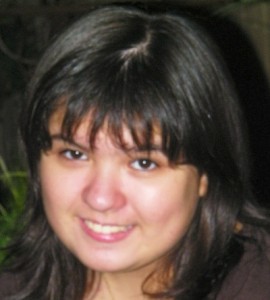Fairness

At that time, a few adults told me “face it, life is not fair”— after being taught my entire 11 years of life to be fair to others. I remember spending the time searching for the definition of the word fair – “reasonable”, “according to the rules”, “straight-way”, “just”.
In my young mind, I was thinking, “here are adult authorities that I am supposed to respect. Are they telling me that life is not reasonable, people don’t follow rules, and it is acceptable to be unjust?” It seemed to me then that as I was getting older, I was feeling increasingly confused and my surroundings more illogical than just a few years back.
It was time to sit me down. My parents gave me permission to say everything that was in my mind — without having to worry about getting a “time-out” or losing privileges. I learned then that because people “have different values and principles that govern their lives, different social and cultural norms they practice”— that what may seem fair and right to some, may not be considered fair or right by others. As an example, I was told that “while divorce is acceptable in the United States, it is not in some countries”.
But I believed then and I still believe now that kids should NOT just be simply told that “Life is not fair”. Kids should learn to value fairness so that when they are grown-up they will try to be fair. If kids learn that unfairness is a fact of life, they’ll think that it is okay to be unfair. Unfairness is something we all should try to change. I know that it takes a lot of effort to do and effort to try to keep — but that’s what LEADERSHIP is all about, finding what unfairness can be changed and putting in some constructive effort to fix it.
Today, as a young person entering the world of adults, it is not just the issue of fairness but truth that matters to me. In the TV show, Bones, the character of Gordon Gordon, highlights the difference between ACCURACY and TRUTH. I think that so much of what we hear and read these days tell us the ‘facts of the matter’, and because they are supposed to support all their findings and avoid spin, people sometimes repeat their statements to others.
Article continues after this advertisementWhile they may be accurate in some sense, they may not actually be telling us the TRUTH, especially in the sense that readers or listeners are likely to interpret them. I sometimes call it the “half-truths” which most often result in a different perspective if the other half is known. Let’s take for example one statistic that 50 percent of all marriages end in divorce. In one of my psychology books, it showed that in 1981, there were 2.4 marriages and 1.2 divorces, hence the 50 percent right?
Article continues after this advertisementAs I analyzed this, the ones who got married and the ones that got divorced that year are in most cases not going to be drawing from the same group of people. It would be other people who wed in previous years that decided to cut the knot. Also, statistics show people with one divorce are more likely to divorce again, so while you may say that 50 percent of all marriages end in divorce, it could have limited merit if you look at for example, unduplicated names.
Now, if we look at divorce from the lens of fairness, measured through the eyes of people affected by the divorce or the opinion of the public, is divorce okay or not?
Just like some news or talk shows today on many subjects, I think that important and relevant points get lost in the discourse. The citizens of this country are sometimes prevented from creating their own unique position on issues pushed and swayed by television anchors, newspaper writers or the political climate.
Do reporters for example, fairly expose every point of view? Do they seek objective, adequate explanations for issues covered — whether it is about politics, the environment, the use of birth-control, or divorce and marriage?
Is it fair for celebrities and public figures to get hunted down by some media and to instigate snarky comments about very detailed private lives for the world-wide-web consumption? Is this really serving our society well? Is it really for the good and the welfare of the young minds? How about the lives of children involved in that marriage — do we even think about the impact on them?
I don’t believe that too much mudslinging helps our society. As I re-read the articles I have written over time journalizing my thoughts and feelings, I see fairness and truthfulness as important for our own general welfare and in building friendship and goodwill for all humankind. As the saying goes, it is easier said than done, but we should all give it a good try. There is also another thing fervent in my mind, the issue of discrimination and unlearning racism. That will be my topic in “Fairness Part II”.